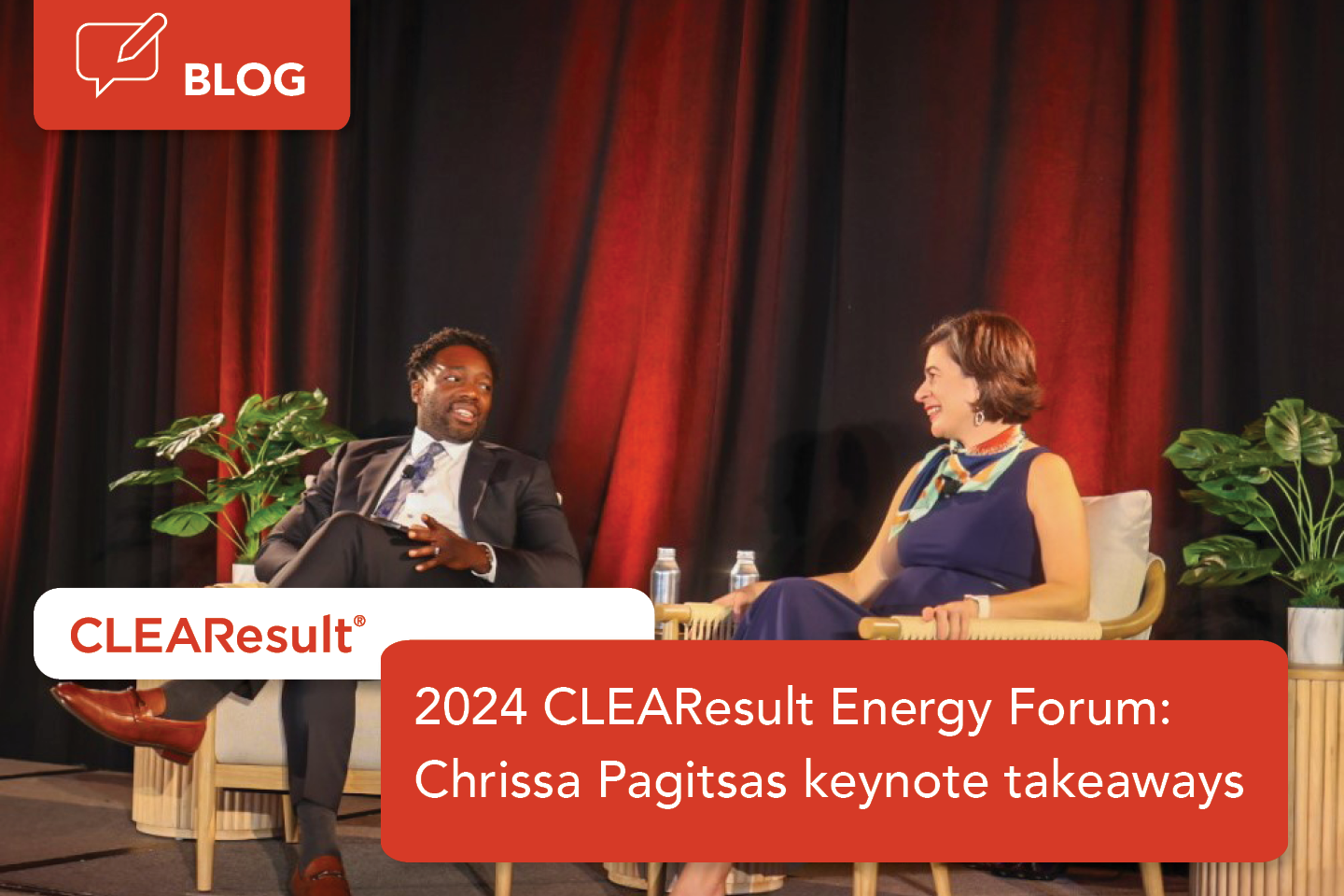Weathering the storm: How leaders navigate disruption and thrive

test qa env
On day two of the 2024 CLEAResult Energy Forum, Chrissa Pagitsas shared her insights on navigating uncertainty in the utility sector. Her keynote outlined the 5 Ps of Sustainable Value Creation: prioritize key goals, forge strong partnerships, invest in pilots, integrate products and catalyze process change.
Pagitsas said that disruptions—whether regulatory, market-driven or consumer-related—are opportunities for growth. Leaders who embrace uncertainty and engage in scenario planning will position their organizations for long-term success. With decarbonization and grid modernization on the rise, utilities need to act now to integrate sustainability into their core operations.
The 5 Ps of Sustainable Value Creation
Prioritization: Focus on aligning goals with stakeholder interests. Speaking in financial language, with terms such as "net operating income" or "asset value," helps secure internal buy-in.
Partnerships: Build both external and internal partnerships. Pagitsas highlighted her experience partnering with the Environmental Protection Agency to develop key sustainability scores and working with finance teams to align business and energy goals.
Investing in pilots: Pilots are essential for testing new strategies and should be viewed as opportunities to learn. Leaders should welcome failure as a way to refine and improve future efforts.
Integration with products: Sustainability should be integrated across all products and services so that every stakeholder sees the value in the utility’s sustainability efforts.
- Catalyzing process change: Sustainability needs to move from a supporting role to the center of operations. Utilities should embed sustainability into their processes at every level, from boardrooms to field teams.
Fireside chat with Paul Douglas
Following her keynote, Paul Douglas, founder of the JPI Group, joined Pagitsas for a fireside chat. They discussed the importance of piloting solutions to reach low-to-moderate-income (LMI) communities, touching on their unique needs that require testing new approaches through community engagement. Pilots allow for learning and adjusting strategies based on real-world feedback.
Douglas stressed the critical role of workforce development, starting with high school programs to encourage careers in energy. He also mentioned how small businesses, which employ 60% of the U.S. workforce, often lack the necessary funding and training to participate in clean energy programs.